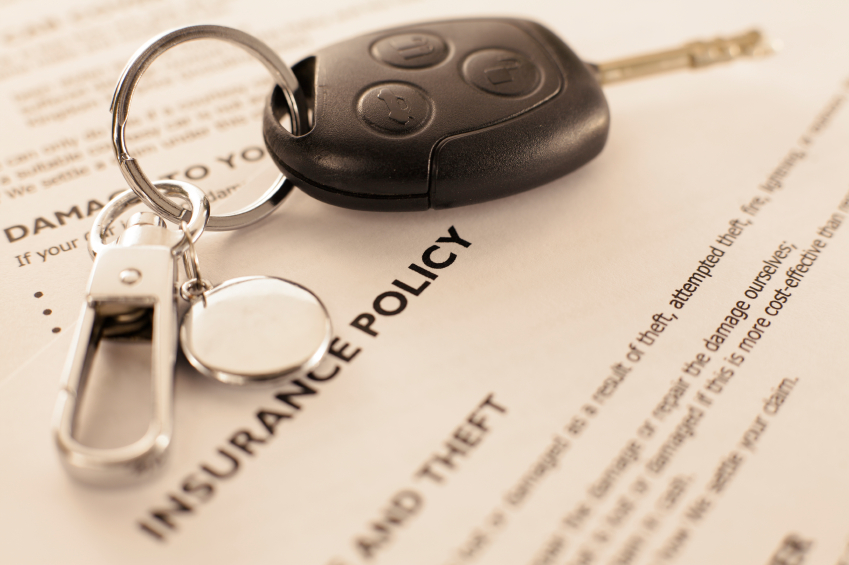

At NerdWallet, we adhere to strict standards of editorial integrity to help you make decisions with confidence. Many or all of the products featured here are from our partners. Here’s how we make money.
The formulas used to price car insurance can be a real black box. Your insurance rates might be affected by factors you can’t control and might not even know about. A recent study from NerdWallet found that people can save an average of $859 a year just by shopping around because pricing is so uneven among companies for the exact same coverage.
Here are five reasons you might be getting penalized on your car insurance rates.
1. You have fair or poor credit
Some studies have shown a correlation between lower credit and a higher chance drivers will make claims. Although consumer advocates dismiss the correlation and think using credit in pricing can be discriminatory, insurers in most states are allowed to take credit into account.
So even if you dutifully pay your car insurance bill on time, if other bills have gotten behind and dinged your credit you’ll pay more for car insurance. Only California, Hawaii and Massachusetts ban the use of credit in pricing auto insurance.
A recent analysis by NerdWallet found that bad credit can push up your insurance rate even more than causing a car accident. The solution? Over time you can improve your credit score. Meanwhile, shop around with at least five carriers.
[Compare car insurance quotes with NerdWallet’s Car Insurance Comparison Tool.]
2. You’re a loyal customer
A lot of us have inertia when it comes to auto insurance: We’re likely to stay with the same company year after year unless we have a bad experience. And auto insurers are on to us. The industry has developed a sneaky system called “price optimization.” Insurers test small price hikes and analyze data to guess which customers are likely to stay put even if their rates go up. Then, insurers apply the rate hikes to those folks for no other reason.
The practice is legal in most jurisdictions but some states have banned it. Price optimization is banned in California, Delaware, the District of Columbia, Florida, Maine, Maryland, Ohio, Pennsylvania, Rhode Island and Vermont.
3. You drive a high-risk car
If other people who own the same model car as you crash a lot, you’ll pay more for insurance no matter how well you drive. This is because your rates are based in part on the “claims experience” your insurer has seen with that model. This is especially true if you buy collision and comprehensive coverage, which pay for damage to your own vehicle under various circumstances.
If your choice of vehicle happens to attract inexperienced drivers, who tend to crash more often, that can drive up rates for your vehicle. Or maybe you own a flashy sports car: same problem. Sports cars often have the highest car insurance rates because insurers are paying out large claims from speeding drivers.
Stick with minivans and small- or medium-sized SUVs if you want lower rates.
4. You’ve contacted your agent about filing a claim
Considering whether to file a claim can be a delicate decision. You might think your insurance agent can provide guidance on whether it’s worth it, but take a moment to reconsider before you pick up the phone.
Say you backed into a pole in a parking lot and dented your bumper. If you report damage to your agent, the inquiry will probably be put on your record and could affect your rate in the future, even if you never make the claim. This is especially true if you have multiple “inquiries” on your record.
Both actual claims and inquiries are recorded in a database called C.L.U.E., operated by LexisNexis, which many insurers have access to. That means other insurers will see your inquiries, and that might count against you when you shop for new insurance.
If your question is simply about whether the repair costs exceed your deductible, it’s better to take the time to locate your auto policy to find out. If you purchased only liability coverage, your insurer won’t pay for any damage to your car anyway. Check the policy’s “declarations page” to find out what coverage you bought.
5. You haven’t asked about discounts
You might assume your insurance company is automatically applying all the discounts for which you’re eligible. But you might not get the best rate if you don’t ask regularly. For example, your insurer might have overlooked your car alarm, which means you’re missing a discount.
In some cases your insurer or agent simply might not know about changes in your life that can trigger a rate reduction. For example, your insurer won’t know if you’ve reduced your commute, which could lead to a lower rate. It certainly won’t know that your teen is getting good grades unless you provide proof and ask for a good student discount.
Insurance companies have tons of discounts, and it’s hard to keep track of them. It doesn’t cost anything to ask your agent to review available discounts, so you might as well.
Amy Danise is an editor at NerdWallet, a personal finance website. Email: [email protected]. Twitter: @AmyDanise.








